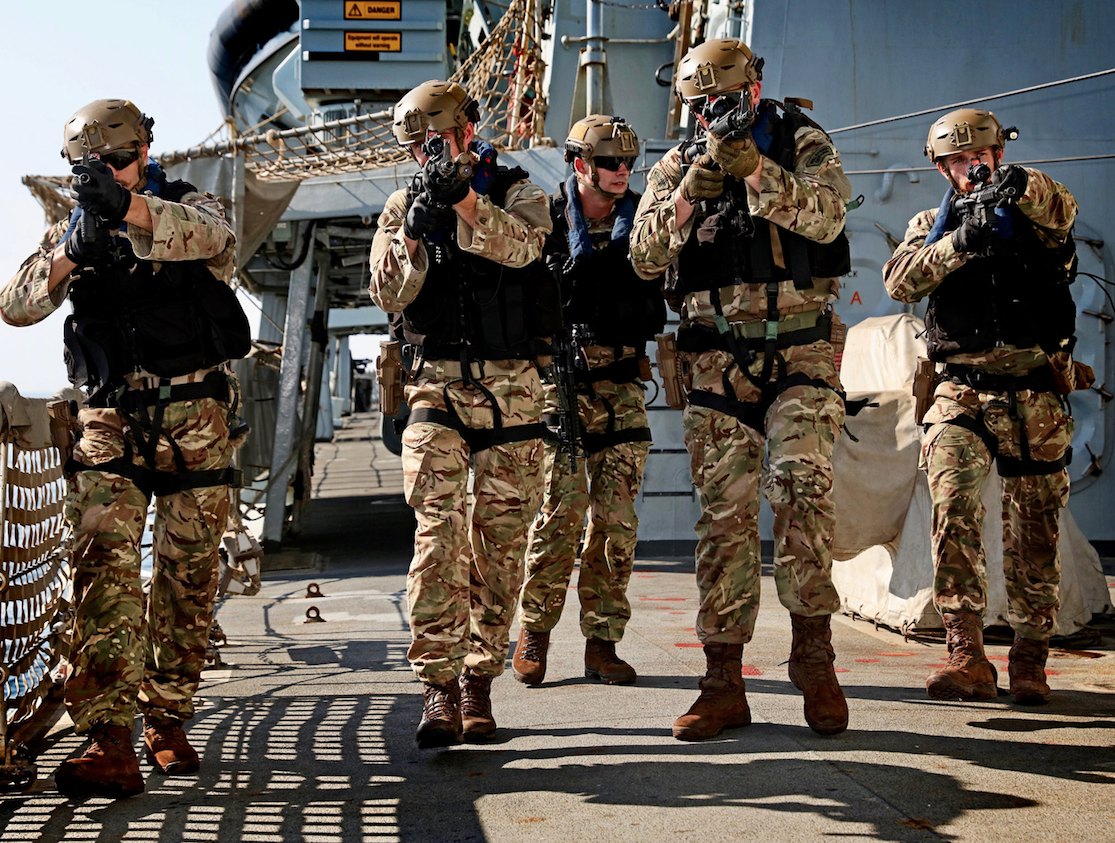A huge development Thursday regarding enforcement of Iran sanctions and the West’s economic war on both Damascus and Tehran: British Royal Marines seized an oil tanker in Gibraltar off Spain’s southern coast while it was en route to Syria in what’s being called an unprecedented and aggressive move to enforce EU sanctions.
As critics of the West’s sanctions policy on Syria are noting: the European Union has for years allowed advanced weaponry to flow into the hands of anti-Assad jihadists, but now it acts swiftly to block vital oil to the war-torn and starved population.
From Reuters:
The Grace 1 tanker was impounded in the British territory at the mouth of the Mediterranean Sea, after sailing around Africa from the Gulf. Shipping data reviewed by Reuters suggests it had been loaded with Iranian oil off the coast of Iran, although its documents say the oil is from neighboring Iraq.
Reports say Gibraltar authorities (Gibraltar is a British Overseas Territory) acted on EU sanctions that have been in place for years against Syria; however one EU sanctions and legal expert told Reuters: “This is the first time that the EU has done something so public and so aggressive. I imagine it was also coordinated in some manner with the U.S. given that NATO member forces have been involved.”
The ship has been identified as the Grace 1 — a Panamanian-flagged tanker managed by Singapore-based IShips Management Pte Ltd. — which had apparently taken the unusual step of sailing all the way around the tip of Africa instead of the Suez canal from the Iraqi port of Basra.
European officials believe it was on its way to the Syrian port of Banyas and its refinery: “That refinery is the property of an entity that is subject to European Union sanctions against Syria,” Gibraltar Chief Minister Fabian Picardo said, according to Reuters. “With my consent, our port and law enforcement agencies sought the assistance of the Royal Marines in carrying out this operation,” he added.
Royal Marines boarded and took control of the tanker heading for Syria. — The Daily Star

We noted that as early as the Spring of this year Tehran began running the high risk gambit of restarting its crude transfers to Syria, also at a time Syrian government areas have been feeling the crushing impact of record fuel shortages after the White House imposed new total oil sanctions on Syria.
A previous CNBC report noted that, “Tanker-tracking firms believe Iran is once again shipping crude oil to Syria, resuming the illicit trade as tensions with Washington rise and the Islamic Republic faces increasing international isolation.” Specifically a one million barrel delivery was successfully made through the Syrian port of Baniyas in early May, the first since the end of 2018, according to TankerTrackers.com and ClipperData.
GBC footage of detained tanker Grace 1 anchored off the Eastside of Gibraltar. The vessel is believed to be in contravention of EU sanctions against Syria. The operation took place overnight with involvement from Royal Marines, Gibraltar Port and Law Enforcement agencies. pic.twitter.com/dpCCLklFck
— GBC News (@GBCNewsroom) July 4, 2019
Both the Grace 1 as well as prior tankers attempting to reach Syria’s coast are accused of “ghosting” – which involves tankers switching off their transponders at sensitive transit points.
Critics of the West’s renewed devastating fuel sanctions on Syria, which has resulted in miles-long fuel queues outside gas stations – have pointed out that the EU has for years allowed weapons shipments to “rebels” seeking to ouster President Bashar al-Assad, while at the same time starving the populace of fuel.
Yes, Europe must not allow Syrians to have fuel!!
What arrogant pettiness. And then they complain about migrants leaving countries their stupid sanctions make unlivable https://t.co/oFOaylbvcE
— Rania Khalek (@RaniaKhalek) July 4, 2019
Since the war in Syria started, the sickening pattern has been this: western and gulf weapons pour into Syria’s proxy war, refugees flee the resulting chaos, sanctions strangle the common people further, and refugees who ultimately return then face the West’s renewed slow economic strangulation of the war-torn country.
And we predicted before: the White House still fundamentally prioritizes weakening Syria as crucial in its ultimate goal of regime change in Tehran. In this sense, the “long war” for Syria could merely be in its middle phase, with the waters in both the East Mediterranean and the Persian Gulf set to continue heating up.
